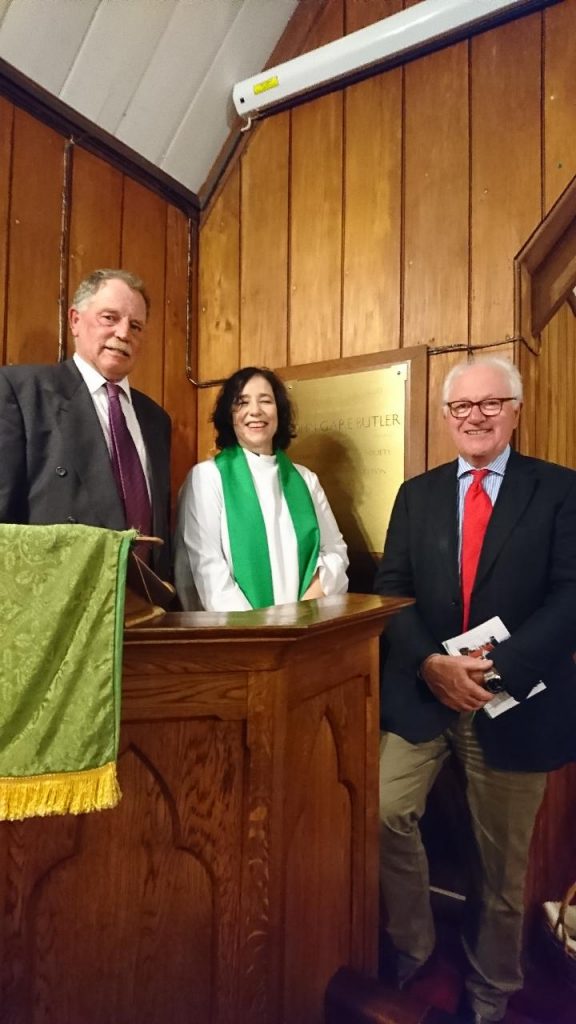
Butler descendants visit Kerikeri
Descendants of Rev John Gare Butler – New Zealand’s first resident ordained missionary who served as the founding Superintendent of the Kerikeri Mission – paid a visit to Kerikeri recently to celebrate the bicentenary of the Butler family’s arrival in New Zealand on 12 August 1819.
Two Great, Great, Great Grandsons of Rev Butler – Tim Ritchie and Douglas Barton – reflected on their ancestor at a service held at St James Church in Kerikeri, a brief walk from Kemp House and the Stone Store, now cared for by Heritage New Zealand Pouhere Taonga.
“It is very humbling to be here in this church which William Hall and John Gare Butler originally marked out on October 6, 1819,” Tim said.
“Given the perils they faced together in their calling to missionary work, both John Butler and his wife Hannah clearly had a cooperative and loving relationship totally interdependent on each other.”
While in New Zealand, the Butlers had a significant impact on agriculture according to Tim.
“Rev John Butler clearly identified the potential for agriculture here – he recorded in his journal: ‘…there is no nation upon earth, perhaps, more favourable for the operations of agriculture than New Zealand’ which he said would ‘enable us to provide the first necessities of life’, and run schools that could not otherwise function ‘without the means of victualling the children’,” said Tim.
“On May 3 1820, he recorded the first ever use of the agricultural plough in New Zealand and noted his thoughts in his journal: ‘I trust that this auspicious day will be remembered with gratitude, and its anniversary kept by ages yet unborn. Every heart seemed to rejoice on the occasion – I hope it will continue to increase, and in a short time produce an Abundant Harvest.’”
A year later, a report sent to the Church Missionary Society in London recorded what he and his team of Maori co-workers had achieved – seven acres of wheat, six acres of barley and oats, a variety of vegetables, fruit trees and ‘an excellent bed of hops’ – along with a potato house, fowl house and a goat house. He also noted in his report the building of a working house for his ‘working natives’ to live in and a small school house.
“Many Butler descendants have agriculture, horticulture and viticulture in their DNA, farming through much of New Zealand – particularly the Wairarapa and Canterbury,” said Tim.
“We can be very thankful of that pioneering Butler agricultural / horticultural gene.”
Rev Butler – who had worked as an accountant for a shipping company in London before coming to New Zealand – fell out with missionary chief Rev Samuel Marsden after he expressed concern to Marsden about financial issues relating to the mission. He was dismissed shortly after.
According to Douglas Barton, Butler was respected by Maori who came from a distance of up to 30 miles to see him when news of the family’s departure became known in November 1823.
“They anxiously enquired ‘what have we done to you?, pray tell us’. He could not tell them why, and appealed to their parental feelings by telling them that they needed to go to Port Jackson for the sake of little daughter Hannah’s health,” he said.
New Zealand had not seen the last of Rev Butler however. The Butlers returned to New Zealand in 1840 with Rev Butler engaged by the New Zealand Company as a Native Guardian and Interpreter.











Comments are closed.